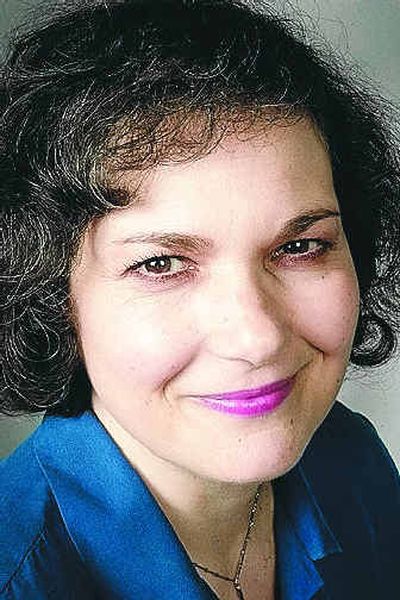Turns out power suits women fine

OLYMPIA – Five of us wait outside the office of Senate Majority Leader Lisa Brown, D-Spokane. There are three men, lobbyists for state universities. And there’s Marilee Roloff, president and CEO of Volunteers of America Spokane. She’s also a trustee at Evergreen State College, and she’s here lobbying for that institution.
A few feet away, the phone rings at the desk of Ruthie Zimmer, executive assistant to Brown. She fields about 50 requests a day for meetings with Brown. She can only schedule about 20. So we are the lucky ones.
I often run into Roloff at events where women gather to work on women’s and children’s issues. I’ve known her for years. I say, “Marilee, let’s cut a deal. I have 15 minutes with Lisa. You have 15 minutes with Lisa. You can sit in on my interview if I can sit in on your lobbying session. Then we’d have 30 minutes total.”
When Roloff and I walk into Brown’s office, we explain our 30-minute deal. No problem. Brown and I have known each other for a decade. Several times we’ve been the usual suspects on “empowered women”-type panels.
Now Brown really does have power. She works from 7:30 a.m. until 9 p.m. most days in Olympia. On the weekends, she flies home to Spokane to be with her 12-year-old son. In 1992, when she was first elected to the House, women were making important inroads into the Legislature. Success begot success.
Now, 33 percent of Washington state’s legislators are women, the third-highest percentage in the nation, according to the Center for American Women and Politics at Rutgers University. Idaho, with 27 percent women legislators, ranks 16th.
When Brown travels to national legislative conferences she sees how women here have graduated to a new level. “You reach a certain threshold where gender isn’t an issue in the same way.”
As Roloff talks with Brown, I gaze around the office. Brown has a framed, autographed album cover of “Blue,” a Joni Mitchell classic. Joni’s songs encouraged women of my generation to dream of bigger lives. She would be proud to see where her music led.
Amber Lewis sits with us. She is a fiscal analyst who works with Brown. She is 25. As I watch her taking notes, I realize that for her generation of women, it is no big deal to sit in a room with a Senate majority leader, a CEO of a major nonprofit and a newspaper opinion columnist. I yearn to tell Lewis that this is reality now because of the women who came before us. The women who braved a run for Senate, who insisted they belonged in a CEO’s suit, who said move over, I’m sitting at the editorial board, too.
The next day, I’m relieved I didn’t say anything. Role-modeling speaks louder than yodeling. I am now touring the Capitol with students from Firgrove Elementary in Puyallup. I am shadowing Julia Smith, a bright and talkative fourth-grader who tells me it’s cool that “the governor is a girl.”
We listen as Rep. Joyce McDonald, a Republican, describes to the students her duties as their legislator. Later McDonald tells me: “I make sure I always shake hands with the girls. It’s important to me that they know their worth.”
My quest in Olympia has been to discover the reason so much women power is now centered here. Two major reasons have surfaced. First, women have been serving in state government in sizable numbers now for more than a decade. It’s no longer a novelty, so women in power here are judged not on gender, but on ability. Just like the men. And just like the men, some of the women legislators have been terrific leaders while others have been average in all respects.
Second, a key to power is building relationships with those you believe can help you get things done. Roloff, Brown and I didn’t bond through the years over scotch-and-steak dinners at the good-old-boys club, a club I’m not sure exists much anymore.
We bonded through the shared desire to someday see women walk around state capitols as if they owned the place, too. And you know, I think they finally do.